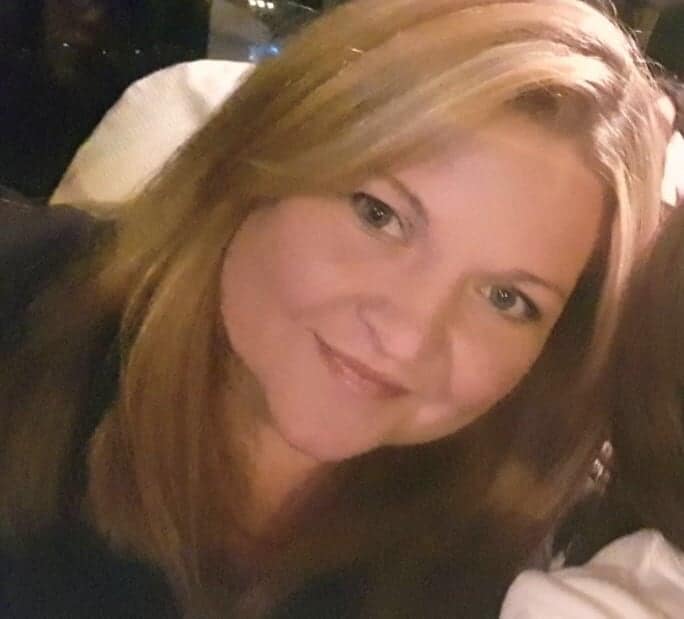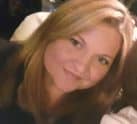
Anna Parkinson is a former BBC producer, now recognised as a writer, healer and teacher. Her book, Change Your Mind Heal Your Body, (Watkins 2014), where she describes the process of healing a brain tumour, has helped many to understand their bodies, to heal, and love their lives more. In this interview Anna shares insights into her professional journey, the importance of self-healing and key points in maintaining self-care.
Please share a bit of your background with us and what inspired you to continue this path professionally?
I was a producer for the BBC and I had been doing the job for nearly 20 years. I became frustrated by my job for various reasons, but it was a good job and I didn’t feel able to walk away. I took time off to write a book about an ancestor of mine whose work I was passionate about. He was herbalist to Charles I and I fell in love with his books about growing medicinal and decorative plants. Almost as soon as I started writing the book however, I was diagnosed with a brain tumour. I’d been having health problems that I’d been managing to ignore, expecting that I would soon get back to ‘normal’, but here was something I just couldn’t ignore, and it was a big shock. Gradually it became clear that the tumour was inoperable, so I explored other ways to deal with it. I knew nothing about healing, but I visited a few healers and was surprised that I could feel a physical effect on my body from their work. Then I met a healer who explained what he had seen going on in my body and it was like the lights were turned on for me. I understood how old emotions that I didn’t think mattered in my life any more were still in my body and expressed themselves through physical conditions. That understanding supercharged my focus on healing myself and within a couple of years I was able to make the tumour disappear, without surgery or any medical treatment. Healing became my passion, and healing others began to teach me what I needed to know to do it. I finished the book about my ancestor though* and when it was published it was rated in the top ten gardening books of the year. *‘Natures’s Alchemist: John Parkinson, herbalist to Charles I’
What healing modalities do you offer, and do you have a personal preference?
I practise a system called Body Mirror Healing which I learned from its creator, Martin Brofman, who was the healer who illuminated the power of healing for me. The healing is accurate and powerful and once the person being healed understands what their unconscious is saying to them, through their body, this adds a huge impetus to their path to healing. I also practise lomilomi, the Hawaiian form of massage. We all live in our bodies, and we can only feel ourselves to health and wellbeing. We can’t think ourselves into that position. Sometimes we need to release the energy in our bodies without thinking and massage will deliver that for you. The Hawaiian treatment is like a rhythmic hypnosis for your body and wonderful. It doesn’t go so deep into your spiritual journey as healing does, but it’s the perfect treatment for some people.
What are some of the more common aspects people approach you with?
People come to me for help with healing everything, from late-stage cancer to business problems! I have treated 4 years olds and 84 years olds. There is no limit to healing. Every physical symptom is expressing the language of the body. What the symptoms express are the feelings of the person who owns that body, some of which may be unconscious, or ancient, or the view of ‘reality’ that person took for granted because of how they grew up. There is always an alternative ‘reality’. Many of the effects of healing are unpredictable and mystical but, in general, healing rebalances the non-physical energy that inhabits and emanates from all of us, so it can change your perspective dramatically, as it did for me. Changing your perspective has a logical effect, if it is deeply felt. It changes your physical state, instantly or gradually, and also events and relationships. Our personal energy interconnects with our environment, so when we change our perspective, we change the experiences we have as well our physical condition. Self-healing is an important part of the process though. I sometimes say that as a healer I’m like an emergency mechanic. I come out and fix a problem and get you moving again. But if you want your car to run smoothly you will need to give it maintenance. Gradually you get better and better at that. This is why I’ve written Beyond Sex and Soup: Living a Spiritual Adventure – to show people the tools they can use. That way difficult experiences become routes into a more fulfilling life instead of depressing obstacles. That’s self-healing.
What do you feel is the most important aspect for the success of self-healing?
Good question! I used to do workshops in a studio that was part of a former Victorian factory in East London. The factory was called ‘Perseverance Works’, and I love that, because it is literally true. This is for me the most important aspect of self-healing: decide your goal, picture it with all your senses and persevere in a daily practice of imagining that picture to be your new reality. Then take note of your progress. There will be days when it seems hopeless, and other days when you look back at where you started and are astonished at how far you’ve come. Meanwhile lots of feelings you’d been unaware of will emerge and you’ll be in a position to release yourself from the effect they’ve had on you.
You have authored a number of books with the most recent being “Beyond Sex and Soup – Living a Spiritual Adventure”. What insights could readers gain from this?
There are two key things that I hope readers will get from “Beyond Sex and Soup – Living a Spiritual Adventure”. One is the way our spiritual path is expressed through our physical life. I explain this through personal stories and examples from people I have worked with. The other is how we can use the physical events and intense emotions we experience to propel ourselves to more personal happiness and fulfilment, even when those emotions are negative. If we tackle our feelings with the ‘tools’ I suggest in the book they become gateways to greater understanding, clarity and love.
Lastly, when it comes to health and wellness are there any non-negotiable practices you use personally to maintain your self-care?
- Personally I think it is vital to claim a little bit of space in your life that is just for you. Insist on taking your time alone, however many others you care for or responsibilities you have. It can be as little as 10 minutes a day, but even if you use the time just to focus on your breathing, and nothing else, things will emerge from your subconscious that are important for you to deal with. So many of us live in a constant ‘to do’ list. That’s OK, so long as it’s balanced with a healthy dose of ‘do nothing’ in your day. If you live alone, you should do this but also the reverse: make sure you have daily contact with others, through work or volunteering or family and friends.
- Stay in touch with your body. It’s really important to move as much as possible every day, find the limits of your strength and flexibility with a good variety of exercise. If you don’t, your body gets ‘rusty’ and you lose the sensitivity to all the messages it can deliver you. Your body is your best friend. It really wants you to be happy.
- Make sure to have some contact and observe nature every day: a garden, trees, the sea, a plant, birds, fish and animals… Even if you live in a tower block apartment in the city, you can care for plants on your windowsill!



